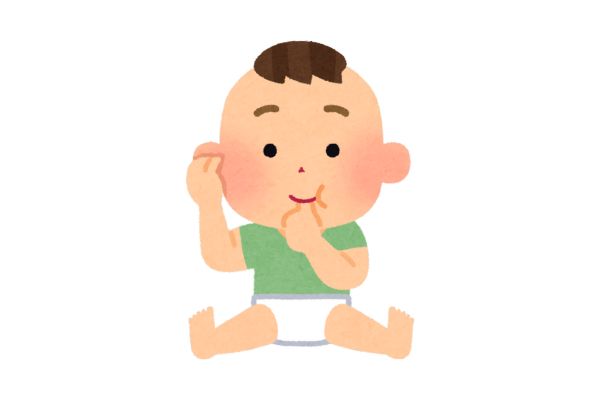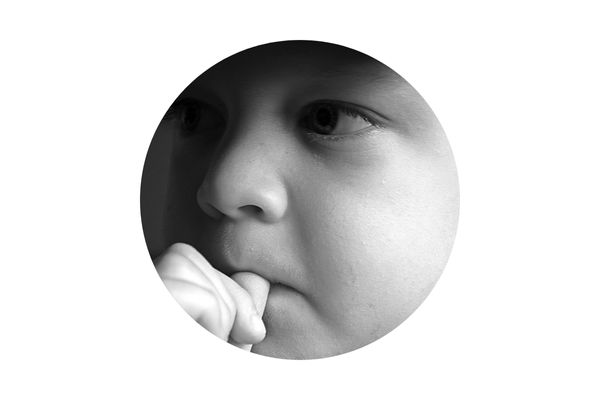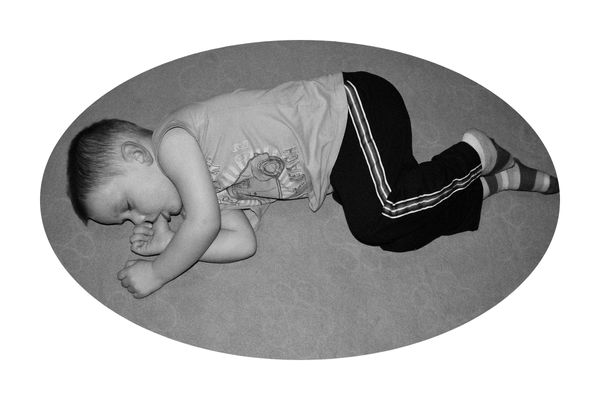Thumb sucking is a common practice in infants and young children. It provides comfort and security and helps them explore the world. However, as a parent, you may wonder – is thumb sucking bad for my child? Like many things related to parenting, the answer isn’t a simple yes or no. Here is a comprehensive guide to understanding thumb sucking, its possible effects, and how to deal with this habit in your child.
Why do babies suck their thumbs?
Thumb sucking is a natural response already present before birth. Babies often suck their thumbs or fingers in the womb. This reflex continues after birth, providing several benefits:

- Comfort and security: Sucking provides a feeling of peace and comfort, just as a warm blanket comforts a baby.
- Exploration: Putting objects in their mouth is a natural way for babies to learn about the world around them.
- Pain relief: Sucking can help ease the discomfort caused by teething or hunger pangs.
When does thumb sucking become a problem?
While thumb sucking is relaxing, prolonged thumb sucking after a certain age can lead to dental problems. Here are details of the specific timeline:
- Birth to 4 years: Thumb sucking is generally considered normal and harmless during this stage. Most babies stop sucking their thumb on their own within this time frame.
- 4 to 6 years: If this habit persists for more than 4 years, it is recommended that you gently encourage your child to stop it. This age coincides with the emergence of permanent teeth, and persistent thumb sucking can affect their alignment.
- Over 6 years: Persistent thumb sucking after 6 years can lead to more significant dental problems and potentially impact speech development.
Possible effects of prolonged thumb sucking

While thumb sucking is a natural response, prolonged thumb sucking can lead to the following problems:
- Dental problems: Constant pressure from the thumb can misalign the teeth, leading to overbite, open bite, or crowding.
- Speech difficulties: Thumb sucking can affect the position of the tongue, which can affect the child’s ability to pronounce certain sounds.
- Facial structure: In severe cases, prolonged thumb sucking can change the shape of the jaw and palate.
How to help your child stop thumb sucking
Here are some simple strategies to help your child get rid of thumb sucking:
- Positive reinforcement: Focus on praising your child when they are not sucking their thumb.
- Provide alternatives: Provide a soft stuffed animal or chewable toy as an alternative to relaxing sucking.
- Address the underlying issues: If the habit seems to be linked to anxiety or stress, identify the trigger and offer calming techniques like deep breathing or a light massage.
- Positive communication: Avoid shaming or scolding your child. Talk openly about the possible consequences of prolonged sucking and discuss together ways to break this habit.
- Work with a dentist: If the habit persists after age 6, consult a dentist. They can provide guidance and explore alternatives such as gentle reminders or oral appliances to discourage thumb sucking.

Important Tips
- Be patient: Breaking any habit takes time. Be patient and provide consistent support to your child.
- Focus on the positive: Celebrate your child’s progress, no matter how small.
- Maintain good oral hygiene: Regular brushing and flossing can help reduce any damage caused by thumb sucking.
- Seek professional help: If you are concerned about your child’s oral health or development, do not hesitate to consult a dentist or pediatrician.
Related: Potty Training: A Guide to Choosing the Perfect Method for Your Little One
Additional Considerations
- Thumb sucking vs. pacifier use: While both habits provide comfort, it may be easier to get rid of a baby’s pacifier habit when the time comes. However, prolonged pacifier use can lead to dental problems if a certain age does not discontinue it.
- Emotional security: If your child seems particularly attached to thumb-sucking, it may be a sign of a need for emotional security. Address any underlying anxiety or stress that may be fueling this habit.
Final Words
By understanding the reasons behind thumb sucking and its possible effects, you can overcome this phase effectively. Remember, early intervention and gentle guidance are key to helping your child break the habit and maintain good oral health.





